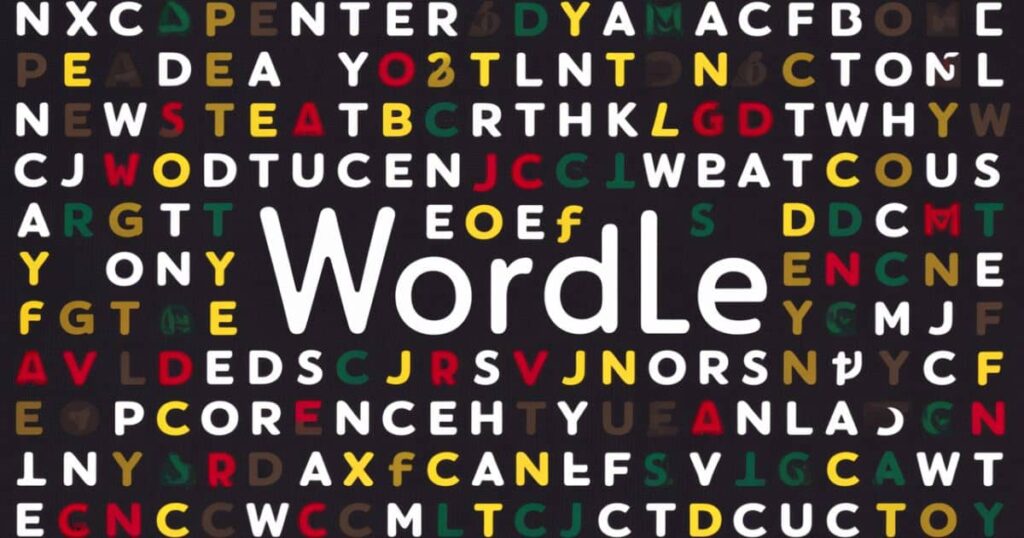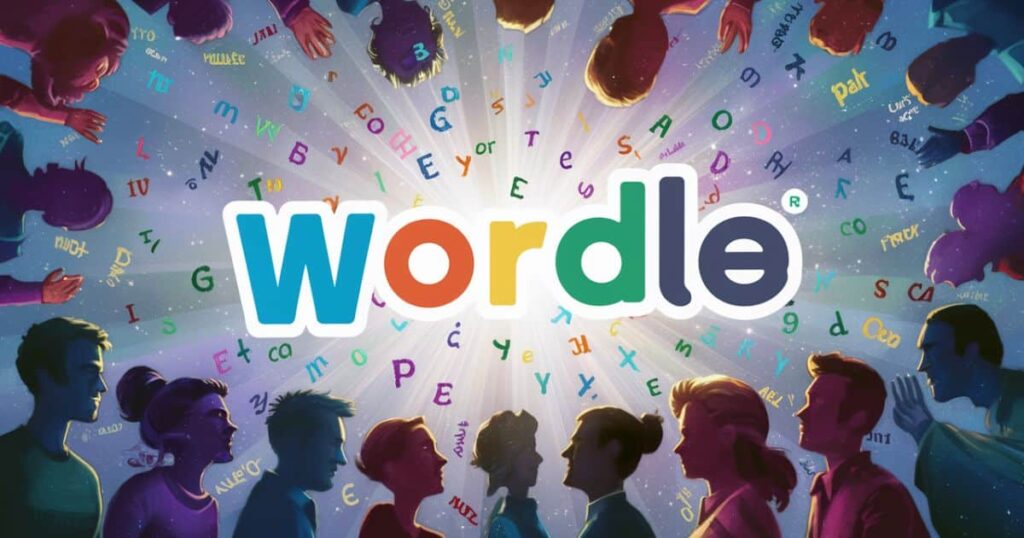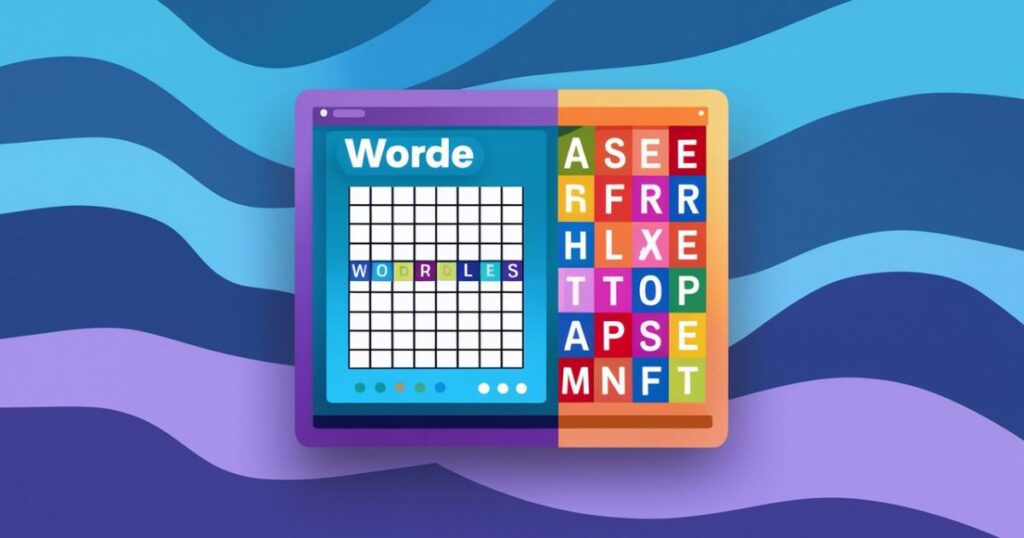Introduction
In the ever-evolving digital landscape, a simple yet captivating word game has managed to capture the hearts and minds of millions worldwide. Wordle, the beloved online puzzle, has become a daily ritual for word enthusiasts, puzzle aficionados, and casual players alike. Today, we’ll delve into the world of Wordle, exploring the Latest Wordle Newsweek Edition and uncovering strategies, tips, and insights to help you master this addictive game.
The essence of Wordle’s appeal lies in its simplicity and accessibility. With just a few keystrokes, players are transported into a world of wordsmithing, where the thrill of unraveling a hidden word becomes an all-consuming pursuit. Yet, beneath this seemingly straightforward premise lies a depth of cognitive challenge and psychological satisfaction that has propelled Wordle to the forefront of popular culture.
What is the Latest Wordle Newsweek Edition?
The Latest Wordle Newsweek Edition is a special collaboration between Wordle and the renowned Newsweek magazine. This edition features a unique set of word puzzles carefully curated by Newsweek’s editorial team, adding an exciting twist to the classic Wordle experience. With a focus on current events, cultural trends, and thought-provoking topics, this edition promises to challenge and entertain players like never before.
One of the defining features of the Newsweek Edition is its ability to seamlessly blend the timeless joy of word puzzles with the ever-changing landscape of contemporary discourse. Each day’s word choice is meticulously crafted to reflect the zeitgeist, offering players a window into the world’s most pressing issues, groundbreaking discoveries, and captivating narratives.
How to Play and Win at Wordle?

Wordle’s simplicity lies in its ability to captivate players of all ages and skill levels. To play, you must guess a five-letter word by entering your guesses one letter at a time. The game provides color-coded feedback, indicating which letters are correct, incorrect, or in the wrong position. With each subsequent guess, you can narrow down the possibilities until you unveil the correct word.
While the rules are straightforward, mastering Wordle requires a combination of strategic thinking and wordsmith skills. Here’s a step-by-step guide to help you increase your chances of success:
- Start with a word containing common vowels and consonants: Begin your game by entering a word like “SLATE” or “CRANE.” These words include common letters that can provide valuable feedback right from the start.
- Analyze the feedback carefully: Pay close attention to the color-coded clues Wordle provides. Green indicates a letter is correct and in the right position, yellow means the letter is in the word but in the wrong spot, and gray signifies the letter is not present in the word.
- Consider word patterns and letter frequencies: Based on the feedback, start mentally constructing a list of potential words that fit the revealed information. Take into account common word patterns, letter frequencies, and positional clues to narrow down your options.
- Eliminate incorrect guesses: As you progress through your guesses, cross off words that no longer fit the feedback you’ve received. This will help you focus your efforts on the most promising candidates.
- Stay patient and persistent: Wordle rewards strategic thinking and patience. Don’t be discouraged if you don’t solve the puzzle immediately. With each guess, you’ll gain valuable insights that bring you closer to the solution.
Tips and Strategies for Solving the Puzzle
While the basic gameplay of Wordle is straightforward, mastering it requires a combination of strategic thinking and wordsmith skills. Here are some tips and strategies to help you become a Wordle pro:
- Start with a word containing common vowels and consonants: Begin your game by entering a word like “SLATE” or “CRANE.” These words include common letters that can provide valuable feedback right from the start.
- Eliminate letter combinations that are unlikely: After a few guesses, start eliminating letter combinations or patterns that seem unlikely based on the feedback you’ve received. This will help you focus your efforts on more promising possibilities.
- Consider word frequency and patterns: Some letters and letter combinations are more common in English words than others. Keep track of these patterns and use them to your advantage when making guesses.
- Take advantage of word lists and resources: While Wordle is designed to be played without external aids, having access to word lists or resources can be helpful, especially for more obscure or challenging words.
- Stay patient and persistent: Wordle rewards strategic thinking and patience. Don’t be discouraged if you don’t solve the puzzle immediately. With each guess, you’ll gain valuable insights that bring you closer to the solution.
Common Mistakes to Avoid in Playing Wordle
Even seasoned Wordle players can fall into common pitfalls that hinder their progress. Avoid wasting guesses on uncommon letter combinations or words with repeated letters. Resist the temptation to make random guesses without considering the feedback from previous attempts. Remember, Wordle rewards strategic thinking and patience.
Here are some common mistakes to watch out for:
- Guessing words with repeated letters too early: While words with repeated letters are valid in Wordle, they can be more challenging to solve. It’s generally better to focus on words without repeated letters until you’ve narrowed down the possibilities.
- Ignoring feedback from previous guesses: Each guess provides valuable information that should be carefully considered. Ignoring or forgetting this feedback can lead to wasted guesses and frustration.
- Relying too heavily on intuition: While intuition can be helpful in some cases, it’s important to back it up with logic and analysis. Don’t fall into the trap of making guesses based solely on gut feelings.
- Getting stuck in a pattern: If you find yourself repeatedly guessing words with similar letter combinations or patterns, it’s time to take a step back and approach the puzzle from a different angle.
- Giving up too soon: Wordle can be challenging, but perseverance is key. Don’t be discouraged if you don’t solve the puzzle immediately. Keep trying, and you’ll eventually crack the code.
Strategies for Today’s Wordle
Every day, Wordle presents a new challenge with a unique word to uncover. To tackle today’s puzzle, consider the cultural or topical context provided by the Newsweek edition. Scan the clues and think about relevant events, people, or concepts that could inspire the word choice. By combining your Wordle skills with current knowledge, you’ll increase your chances of cracking the code.
Here are some strategies to help you tackle today’s Wordle:
- Stay up-to-date with current events: The Newsweek Edition of Wordle is designed to reflect the zeitgeist, so staying informed about current events and cultural trends can give you an edge.
- Brainstorm relevant topics and themes: Based on the clues provided, try to identify potential topics or themes that the word might relate to. This can help you narrow down your guesses.
- Consider word origins and etymology: Sometimes, understanding the origins and roots of words can provide valuable insights into their meaning and usage.
- Collaborate with others: Wordle has become a social phenomenon, and discussing your strategies with friends or online communities can often lead to new perspectives and insights.
- Trust your instincts: While it’s important to use logic and analysis, don’t discount your intuition entirely. If a particular word feels right, it’s worth exploring further.
The Role of Hints in Enhancing Wordle Gameplay

While Wordle’s allure lies in its simplicity, occasional hints can add an extra layer of excitement and challenge to the game. The Latest Wordle Newsweek Edition may offer subtle clues or hints related to the word of the day, encouraging players to think critically and explore different angles. Embracing these hints can lead to more engaging gameplay and a deeper appreciation for the puzzle’s intricacies.
Here are some ways hints can enhance your Wordle experience:
- Contextual clues: The Newsweek Edition may provide contextual clues related to current events, pop culture, or specific themes, helping players narrow down their guesses.
- Word associations: Hints can encourage players to consider word associations, synonyms, or related concepts, broadening their perspective on potential solutions.
- Cultural references: By incorporating cultural references or historical contexts, hints can add an educational element to the gameplay, fostering curiosity and knowledge acquisition.
- Increased challenge: Well-crafted hints can raise the difficulty level of the puzzle, challenging players to think outside the box and exercise their problem-solving skills.
- Collaborative solving: Hints can encourage players to collaborate and discuss their theories, fostering a sense of community and shared experiences.
The Psychological Benefits of Daily Wordle Challenges
Beyond its entertainment value, Wordle offers psychological benefits that contribute to overall well-being. The daily word puzzle exercises your brain, enhancing problem-solving skills, critical thinking, and cognitive flexibility. Additionally, the sense of accomplishment and dopamine rush associated with solving a challenging puzzle can boost mood and confidence.
Here are some of the key psychological benefits of playing Wordle regularly:
- Improved problem-solving skills: Wordle requires players to analyze information, identify patterns, and think critically to solve the puzzle. This process strengthens problem-solving abilities, which can be applied to various aspects of life.
- Enhanced cognitive flexibility: As players navigate through different word possibilities and adapt their strategies based on feedback, they exercise cognitive flexibility – the ability to shift perspectives and adapt to changing situations.
- Increased focus and concentration: Wordle demands sustained attention and concentration, helping players develop better focus and mindfulness skills that can carry over to other tasks and activities.
- Stress relief and relaxation: Engaging in a low-stakes, enjoyable activity like Wordle can provide a welcome distraction from daily stressors, promoting relaxation and reducing anxiety levels.
- Boosted self-confidence: Successfully solving a Wordle puzzle, especially on challenging days, can lead to a sense of accomplishment and increased self-confidence, reinforcing a growth mindset and a willingness to take on new challenges.
- Social connection: The viral nature of Wordle has created a shared experience, fostering social connections and conversations around the daily puzzle, contributing to a sense of community and belonging.
By incorporating Wordle into your daily routine, you not only exercise your brain but also nurture your overall mental well-being, making it a valuable and rewarding pastime.
Benefits of Playing Wordle for Mental Health and Cognitive Skills
Regular Wordle play has been linked to various cognitive benefits, including improved memory, increased focus, and enhanced vocabulary. By engaging in this mentally stimulating activity, you can potentially reduce the risk of cognitive decline and maintain a sharp mind well into old age. Furthermore, the game’s low-stress nature can serve as a therapeutic outlet, providing a welcome distraction from daily stressors.
Here are some specific benefits of playing Wordle for mental health and cognitive skills:
- Vocabulary expansion: As players encounter new words and their meanings, they naturally expand their vocabulary, improving their communication skills and comprehension abilities.
- Memory enhancement: Wordle requires players to recall and apply information from previous guesses, exercising short-term and working memory, which can help strengthen overall memory function.
- Cognitive stimulation: Engaging in mentally challenging activities like Wordle can stimulate the brain, promoting the formation of new neural connections and potentially delaying cognitive decline associated with aging.
- Improved concentration and attention: The focused nature of Wordle requires sustained attention and concentration, helping players develop better skills in these areas, which can translate to other aspects of life.
- Stress reduction: The low-stakes, enjoyable nature of Wordle can provide a welcome distraction from daily stressors, allowing players to engage in a therapeutic activity that promotes relaxation and mindfulness.
- Increased self-confidence: Successfully solving Wordle puzzles can boost self-confidence and a sense of accomplishment, promoting a growth mindset and a willingness to take on new challenges.
Incorporating Wordle into your daily routine can be a fun and engaging way to exercise your brain while potentially improving your overall mental health and cognitive abilities.
The Social Dynamics of Sharing Wordle Scores
Wordle has evolved into a cultural phenomenon, fostering a sense of community and shared experience among players. Many enthusiasts take pride in sharing their Wordle scores and strategies on social media platforms, sparking friendly competitions and engaging discussions. This social aspect not only adds to the enjoyment of the game but also promotes connectivity and camaraderie among like-minded individuals.
Here are some of the social dynamics surrounding the sharing of Wordle scores:
- Friendly competition: By sharing their scores, players can engage in friendly competitions with friends, family members, or even strangers online, adding an element of excitement and motivation to the game.
- Strategy sharing: Social media platforms provide a space for players to discuss their strategies, share tips and tricks, and learn from others’ experiences, fostering a collaborative learning environment.
- Community building: The act of sharing Wordle scores and experiences creates a sense of community among players, connecting individuals from diverse backgrounds and locations through a shared interest.
- Collective problem-solving: When players encounter particularly challenging Wordle puzzles, they can turn to online communities for collective problem-solving, drawing upon the collective wisdom and insights of fellow enthusiasts.
- Meme culture and humor: The Wordle phenomenon has spawned a vibrant meme culture, with players sharing humorous takes on their experiences, contributing to a sense of shared laughter and camaraderie.
- Bonding and connection: For many, sharing Wordle scores has become a daily ritual, strengthening bonds and fostering connections with loved ones, colleagues, or online acquaintances.
The social dynamics surrounding Wordle highlight the game’s ability to bring people together, fostering a sense of community and shared experiences in an increasingly digital world.
The Evolution of Wordle and Its Impact on Daily Life
Since its inception, Wordle has undergone various transformations and adaptations, further solidifying its place in popular culture. From mobile apps to themed variations, the game continues to evolve, capturing the imagination of players worldwide. Its impact extends beyond mere entertainment, as it has become a part of many people’s daily routines, fostering a sense of ritual and tradition.
Here’s a closer look at the evolution of Wordle and its impact on daily life:
- Mobile apps and accessibility: While initially designed as a web-based game, Wordle has since been adapted into mobile apps, making it more accessible and convenient for players to enjoy on-the-go.
- Themed variations: Capitalizing on Wordle’s popularity, developers have created themed variations of the game, catering to specific interests or topics, such as sports, music, or pop culture.
- Merchandise and branding: The Wordle craze has spawned a thriving merchandise industry, with players proudly showcasing their love for the game through apparel, accessories, and other branded products.
- Integration into daily routines: For many players, Wordle has become a part of their daily routine, a ritual that starts their day or provides a welcome break from work or other responsibilities.
- Educational applications: Recognizing Wordle’s educational potential, educators and parents have embraced the game as a tool for teaching vocabulary, problem-solving, and critical thinking skills.
- Workplace productivity and bonding: In office settings, Wordle has become a shared activity, fostering workplace bonding and providing a mental break from the daily grind, potentially boosting productivity and morale.
- Pop culture references and integration: Wordle’s widespread popularity has led to its integration into various forms of media, including television shows, movies, and advertising campaigns, reflecting its status as a cultural phenomenon.
As Wordle continues to evolve and adapt, its impact on daily life will likely deepen, solidifying its position as not just a game, but a shared experience that transcends age, geography, and cultural boundaries.
Controversies Surrounding the Latest Wordle Newsweek Edition
While the collaboration between Wordle and Newsweek has generated excitement, it has also sparked some controversies. Some players have expressed concerns about potential political or ideological biases in word choices, while others question the appropriateness of certain topics or themes. These discussions highlight the game’s cultural significance and the importance of responsible content curation.
Here are some of the controversies surrounding the Latest Wordle Newsweek Edition:
- Perceived political bias: Some players have raised concerns about the potential for political bias in the word choices, alleging that certain words or themes may reflect a particular ideological stance or agenda.
- Sensitivity around controversial topics: Words related to sensitive or controversial topics, such as politics, religion, or social issues, have sparked debates about the appropriateness of including them in a word game intended for entertainment.
- Representation and inclusivity: There have been discussions around the need for greater representation and inclusivity in word choices, ensuring that diverse perspectives and experiences are reflected in the game.
- Difficulty level and accessibility: Some players have criticized the perceived difficulty level of certain words, arguing that overly obscure or niche terms may alienate casual players or those with limited vocabulary.
- Commercialization and monetization: Concerns have been raised about the potential commercialization and monetization of Wordle, with some players expressing concerns about the game’s integrity and maintaining its original appeal.
- Privacy and data collection: As with any online platform, there have been questions raised about the collection and use of player data, specifically in relation to personalized word choices or targeted advertising.
Alternatives to the Latest Wordle Newsweek Edition
For those seeking alternative word puzzle experiences, several options are available. From classic crossword puzzles to word scrambles and anagrams, the world of word games offers a wealth of choices to challenge and entertain. Additionally, some Wordle enthusiasts have created their own variations, catering to specific interests or themes, ensuring that the fun never stops.
Here are some popular alternatives to the Latest Wordle Newsweek Edition:
- Crossword Puzzles: The classic crossword puzzle remains a beloved challenge for word enthusiasts. Whether in print or digital form, crosswords test your vocabulary, general knowledge, and problem-solving skills.
- Anagrams: Rearranging letters to form new words is the essence of anagram puzzles. Apps like “WordBrain” and “Jumble Solver” offer a fun and addictive twist on word games.
- Word Scrambles: Similar to anagrams, word scrambles challenge players to unscramble letters to form words. Popular options include “Word Cookies” and “Word Streak.”
- Spelling Bees: Channeling the spirit of competitive spelling competitions, apps like “Spelling Bee” and “Spelling Blitz” test your ability to spell words correctly under time pressure.
- Themed Word Games: For those with specific interests, there are word games themed around topics like movies, music, sports, or literature, catering to niche audiences and enthusiasts.
- User-Created Wordle Variations: Passionate Wordle fans have taken it upon themselves to create their own variations of the game, sometimes with unique rules, themes, or difficulty levels, providing a virtually endless supply of new word puzzles to explore.
- Classic Word Games: Timeless word games like Scrabble, Boggle, and Hangman continue to captivate players of all ages, offering a nostalgic and familiar challenge for those seeking a break from the digital world.
Whether you prefer the simplicity of classic word games or the novelty of modern, themed variations, the world of word puzzles offers a diverse array of options to keep your mind sharp and your love for language flourishing.
Looking Forward: The Future of Wordle and Its Community

As Wordle continues to captivate millions around the globe, its future remains bright and full of possibilities. With a dedicated community of players and developers constantly exploring new ways to enhance the experience, we can expect even more exciting developments. Whether it’s through innovative gameplay mechanics, collaborations with renowned organizations, or the integration of emerging technologies, Wordle’s journey is far from over.
Here’s a glimpse into what the future may hold for Wordle and its vibrant community:
- Augmented Reality (AR) and Virtual Reality (VR) Integration: As immersive technologies continue to evolve, we may see Wordle embracing AR and VR experiences, offering players a more engaging and interactive way to solve puzzles.
- Personalized Word Choices: With advancements in artificial intelligence and machine learning, Wordle could potentially offer personalized word choices tailored to each player’s interests, skill level, and preferences.
- Multiplayer and Social Features: Building upon the game’s existing social dynamics, we may see the introduction of multiplayer modes or enhanced social features that foster collaboration, competition, and community-building among players.
- Educational and Professional Applications: Recognizing Wordle’s potential as a learning tool, we could witness the development of specialized versions designed for educational settings, language learning, or even professional training and development.
- Expanded Language Support: While Wordle currently focuses on English words, future iterations may embrace a more diverse range of languages, opening the door to global participation and cultural exchange.
- Integration with Smart Devices and Voice Assistants: As smart home devices and voice assistants become more prevalent, Wordle could adapt to these platforms, allowing players to solve puzzles using voice commands or integrated displays.
- Gamification and Rewards Systems: To further incentivize and engage players, Wordle may incorporate gamification elements such as rewards, achievements, or leaderboards, adding an extra layer of motivation and friendly competition.
- Crossover Collaborations and Licensing: Building on the success of the Newsweek collaboration, Wordle may partner with other brands, media outlets, or intellectual properties, creating unique and themed word puzzle experiences.
As the Wordle community continues to grow and evolve, its future promises to be an exciting journey of innovation, creativity, and shared experiences. With a dedicated fanbase and a passionate team driving its development, Wordle is poised to remain a cultural phenomenon for years to come.
FAQ’s
What is the Wordle 15 April 2024?
The Wordle for April 15, 2024, was “GIZMO.” It stumped many players with its unusual letter combination.
What is April 16 Wordle?
On April 16, 2024, the Wordle answer was “QUART,” a relatively straightforward five-letter word.
What is Wordle for April 15th?
I’ve already provided the Wordle answer for April 15, 2024 – it was “GIZMO.”
How many people still play Wordle?
While exact figures are unknown, estimates suggest millions of people globally still play Wordle daily, a testament to its enduring popularity.
Has anyone ever got Wordle on the first try?
Yes, though extremely rare, there have been cases of players guessing the Wordle answer correctly on their very first attempt.
What is the most popular starting guess in Wordle?
The most common starting words used by Wordle players include “SOARE,” “ROATE,” and “CRANE,” as they contain commonly used letters.
Summry
In the ever-changing landscape of digital entertainment, Wordle has carved out a special place, captivating millions with its deceptively simple yet profoundly engaging gameplay. From humble beginnings as a web-based word puzzle, Wordle has evolved into a cultural phenomenon, fostering a sense of community, intellectual stimulation, and shared experiences.
As we look toward the future, the possibilities for Wordle are vast, with emerging technologies, innovative gameplay mechanics, and creative collaborations poised to elevate the game to new heights. Whether you’re a seasoned Wordle veteran or a newcomer to the world of word puzzles, one thing is certain: the allure of Wordle shows no signs of waning, and its impact on our daily lives will continue to captivate and delight us for years to come.







